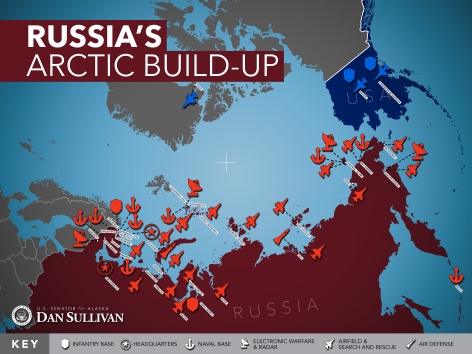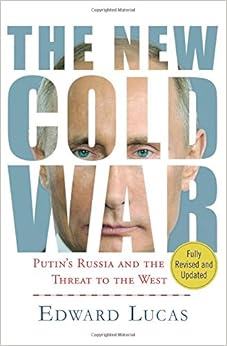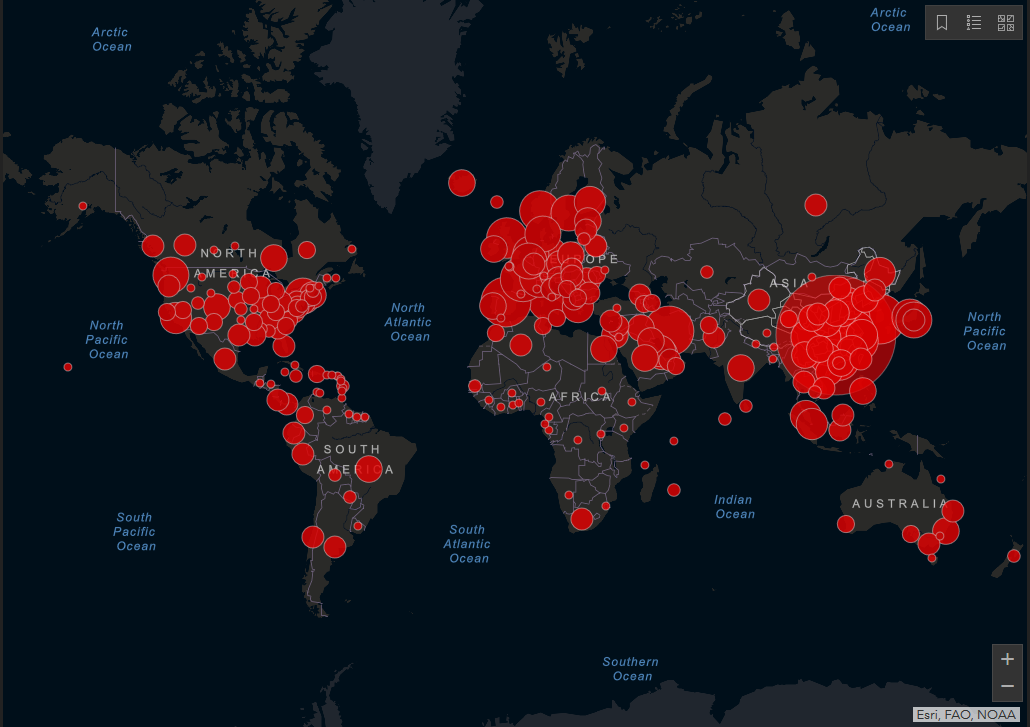> The Georgian army is retreating to defend the capital. The government is urgently seeking international intervention to prevent the fall of Georgia and the further loss of life.
The Georgian army is retreating to defend the capital. The government is urgently seeking international intervention to prevent the fall of Georgia and the further loss of life.
— Government of Georgia representative
This is a classical full-scale invasion. This is an occupation … half of Georgia is under Russian control. Our aim now is to to build up our troops and to create a defensive line in front of Tbilisi. We will fight defending Tbilisi.
— Irakli Batkuashvili, Chief of Georgia’s Military Planning Division
Saakashvili must go.
— Russian Foreign Minister Sergei Lavrov in statement to US Secretary of State Condoleezza Rice, August 10, 2008
Pictured above: Under fire from Russian forces, Georgian soldiers escape burning armored vehicle on the road to Tbilisi, on August 11, 2008.
CAUCASIAN WAR HIGHLIGHTS
– Soviet Army Holds Down Georgian Positions in South Ossetia (source) as Russian Troops and Armored Vehicles Amass in Abkhazia, Push into Western Georgia
– Moscow Confirms Military Base Seized in Senaki, Interior Ministry Building in Zugdidi After United Nations Monitors Leave Town (source); Georgian Prime Minister: Russian Troops Occupy Bomb-Damaged Port of Poti (source)
– Russian Army Units in South Ossetia Move into Central Georgia, Capture City of Gori, Critical East-West Transportation Hub 60 Miles West of Tbilisi (source, also below)
– Russian Air Force Continues Widespread Bombing Campaign Across Georgia (source); Admits to Downing of Three Su-25 Frogfoot Strike Aircraft, One Tu-22M3 Backfire Bomber to Georgian Air Defenses (source)
– Russian Navy’s Black Sea Fleet Sinks Georgian Guided Missile Ship Yesterday (source)
– US Military Completes Redeployment of 2,000 Georgian Troops from Iraq to Tbilisi Today; Putin Lashes Out at America’s Support for Georgia, Pentagon Denies Hostile Intent (source)
– Azerbaijani Media, Citing Israeli Source Maariv: USA Shipped Weapons to Georgia Via Jordan on August 8
– Kremlin/Red Mafiya-Linked “Russian Business Network” Cripples Georgian Government Websites; Presidential Website (Ironically) Finds New Hosting Facility in Atlanta, Georgia
– NATO Agrees to Emergency Session of NATO-Russia Council Tomorrow to Resolve South Ossetia Crisis (source)
– Just in Time to Be Captured by Soviet Forces: Presidents of Five “Ex”-Communist States–Poland, Estonia, Latvia, Lithuania, and Ukraine–to Visit Tbilisi Today or Tomorrow to Show Solidarity with Georgia (source)
In view of the present Caucasian War the big bad Soviet Bear is evidently back, on the prowl, and hungry for revenge and re-aggrandizement. No one should deny this fact. This “war,” however, is not so much a war between two comparably matched states, but a brazen push by the Soviet Bear to reclaim its satellite Georgia and resecure its political-military-economic position north of the oil-rich Middle East. Communist Bloc propaganda emanating from Moscow, Havana and other ideological “friends” in the West are portraying diminutive Georgia as a perpetrator of “ethnic cleansing” against South Ossetia and aggressor against giant Russia, while openly denouncing US, Israeli, and Ukrainian military aid for President Mikhail Saakashvili’s regime.
Accusations, and counter-accusations are freely traded between Moscow and Tbilisi, both of which are controlled by the Red Team, and thus the truth is hard to discern. Various news reports, for example, indicate that the central Georgian city of Gori is again under fire by Russian artillery and warplanes, while The Times, below, reports that the city has already fallen to Soviet troops. “Russia seems intent on overthrowing the democratically elected government of Georgia and occupying the country,” affirmed Alexander Lomaia of Georgia’s National Security Council. Today, too, in a classic case of Kremlin propaganda, Russian authorities assert that the Federal Security Service (FSB/KGB) arrested 10 Georgian intelligence officers who were allegedly planning to commit acts of terrorism on Russian soil.
Pictured below: Gori under attack by Russian forces.
 Russian troops invade Georgia and ‘take the city of Gori’
Russian troops invade Georgia and ‘take the city of Gori’
August 11, 2008
Tony Halpin in Gori, and Kevin O’Flynn in Moscow
Georgia today claimed that Russian forces had overrun the strategic city of Gori as troops prepared to defend the capital Tbilisi from what one official called a “total onslaught”.
Georgian soldiers fled Gori, 17 miles from the border with rebel South Ossetia, in panic and disarray, clinging to the sides of cars and vehicles as they sped out of town. A Georgian armoured personnel carrier was in flames on the street, a victim of an apparent sudden rout.
Alexander Lomaia, secretary of the Georgian security council, said that the Georgian army had been told instead to concentrate its efforts on holding Mtskheta, 15 miles from the capital.
“Russian forces are occupying Gori. Georgian armed forces received an order to leave Gori and to fortify positions near Mtskheta to defend the capital. This is a total onslaught,” Mr Lomaia said.
Just hours before the retreat Georgian President Mikheil Saakashvili and France’s foreign minister Bernard Kouchner had been forced to dive for cover in Gori when an unidentified helicopter flew overhead.
Georgia was facing a Russian push on two fronts as as the Kremlin continued to ignore international pressure for a ceasefire five days into the conflict.
In the west, Russian troops entered Georgia from the breakaway region of Abkhazia on the Black Sea, while in the north, intense shelling continued in and around South Ossetia.
Moscow confirmed that its soldiers had swept from Abkhazia into the town of Senaki, 40 km inside Georgia.
The Defence Ministry in Moscow claimed that the raid on Senaki was intended to prevent Georgian troops from regrouping for “new attacks on South Ossetia”.
The admission marked a dangerous new phase in the conflict as Russia advanced into Georgian territory with no indication of when its offensive might cease, despite a claim from President Medvedev that much of the operation was complete.
President Saakashvili told Georgians in a televised address that Russia was attempting to occupy the whole country. He said: “This provocation was aimed at occupying South Ossetia, Abkhazia and then all of Georgia.”
He claimed that Russian tanks were rampaging through the countryside while Russian troops were carrying out summary killings and human rights abuses.
In the hours before the claimed fall of Gori, The Times witnessed Russian MiG fighter jets bombing Georgian positions about 9 km from the border with South Ossetia, and there were sustained exchanges of artillery fire.
Soldiers on the ground claimed that Russian and South Ossetian forces had established artillery positions inside the border on the Georgian side. Georgian tanks and heavy weaponry ringed the outskirts of Gori in anticipation of a Russian advance.
The prospects for a negotiated ceasefire were dealt a blow when Russia’s ambassador to Nato declared that Mr Saakashvili “is no longer a man that we can deal with”. Dmitri Rogozin said: “He must be punished for breaching international law. He is responsible for many war crimes.”
President Sarkozy of France is preparing to fly to Georgia and Russia tomorrow on a peace mission, following a round of shuttle diplomacy by his foreign minister, Bernard Kouchner, who is due in Moscow tonight carrying a draft ceasefire proposal signed by Mr Saakashvili.
Vladimir Putin, the Russian Prime Minister, said that Russia would continue its military operation until “its logical end”.
He hit out at the United States in particular for transporting 800 Georgian soldiers from Iraq, some of whom were deployed in Gori.
Russia warned the West that “the Georgian side was preparing aggression,” said Mr Putin. “Nobody was listening. And this is the result. We have finally come to it. However, Russia will of course carry out its peacekeeping mission to its logical end.”
Russia’s incursion into Georgian territory follows a rapid troop build up, as thousands of Russian troops have poured into Georgia’s breakaway provinces of South Ossetia and Abkhazia.
Nato’s Secretary-General today criticised Russia over its “disproportionate” use of force. Jaap de Hoop Scheffer was “seriously concerned” about Russia’s response and its “lack of respect for the territorial integrity of Georgia,” a spokesperson said.
The statement followed President Bush’s comments in Beijing, where he was watching the Olympics. He said he had spoken “firmly” to Mr Putin, who was directing the Kremlin’s actions in Georgia.
Gordon Brown today made his first direct comments on the crisis, saying there was “no justification” for Russia’s military action in Georgia, and that there was a “clear responsibility” on Moscow to agree a ceasefire and bring a swift end to the conflict which threatened a “humanitarian catastrophe”.
 Pictured here: A US military transport aircraft arrives in Tbilisi and unloads the first contingent of Georgian soldiers to be withdrawn from the battlefield in Iraq, on August 11, 2008.
Pictured here: A US military transport aircraft arrives in Tbilisi and unloads the first contingent of Georgian soldiers to be withdrawn from the battlefield in Iraq, on August 11, 2008.
Although the Russian air campaign has reportedly reduced the number of operational airfields in Georgia, including a near hit at the Tbilisi International Airport, the US military has nearly completed its redeployment of Georgian troops to their homeland today. These troops have already been deployed to Russian-occupied Gori, reports The Times. “We will drink Russian blood,” vowed Badri, one of Georgian soldiers newly arrived from Iraq.”
In response, Russia’s KGB-communist dictator Vladimir Putin denounced US logistical support for the Georgian military. Putin rumbled: “It is a shame that some of our partners are not helping us but, essentially, are hindering us. I mean … the transfer by the United States of a Georgian contingent in Iraq with military transport planes practically to the conflict zone. The very scale of this cynicism is astonishing – the attempt to turn white into black, black into white and to adeptly portray victims of aggression as aggressors and place the responsibility for the consequences of the aggression on the victims.”
The Pentagon denies hostile intent in the redeployment. “We are fulfilling our agreement with the Georgian government that in an emergency we will assist them in redeploying their troops. We are honoring that commitment,” Pentagon spokesman Bryan Whitman explained and then specifically refuted Putin’s assertion that US military aircraft were directly airlifting Georgian troops into the combat zone.
According to the Azerbaijani media, citing Israeli source Maariv, the USA is also transporting weapons to Georgia via Jordan: “The US established air bridge between Jordan and Georgia and sent ammunitions to Georgia, APA reports quoting Israeli newspaper Maariv. Four transports flew from Akaba, Jordan to Georgia on August 8. Georgian army has not used new weapon in the war and wants to make surprise to Russian servicemen, said in a report. U.S transport planes have sent 800 Georgian peacekeepers from Iraq to Georgia.”
Today US President George W. Bush delivered a statement on the Caucasian War from the Rose Garden:
The military crackdown has substantially damaged Russia’s standing in the world. And these actions jeopardize Russia’s relations with the United States and Europe. It is time for Russia to be true to its word and to act to end this crisis. I just met with my national security team to discuss the situation in Georgia.
I am deeply concerned by reports that Russian troops have moved beyond the zone of conflict, attacked the Georgian town of Gori, and are threatening Georgia’s capital of Tiblisi. If these reports are accurate, these Russian actions would represent a dramatic and brutal escalation of the conflict in Georgia. The actions would be inconsistent with assurances that we have received from Russia that its objectives were limited to restoring peace in separatist pro-Russian areas.
Russia has invaded a sovereign neighboring state and threatened a government elected by its people. Such an action is unacceptable in the 21st century. Russia’s government must respect Georgia’s territorial integrity and sovereignty. Russia’s government must reverse the course that it appears to be on as a first step toward resolving this conflict.
 In summary, Soviet animosity toward US intervention in the Caucasion War portends a superpower showdown between Washington and Moscow but the US President in his Rose Garden statement gives no indication of this reality. Journalist David Blair at The Telegraph rightly observes: “. . . Putin has demonstrated that the Kremlin will use force to protect the 25 million Russians who inhabit the Soviet Union’s successor states, well beyond the mother country’s borders.” Indeed.
In summary, Soviet animosity toward US intervention in the Caucasion War portends a superpower showdown between Washington and Moscow but the US President in his Rose Garden statement gives no indication of this reality. Journalist David Blair at The Telegraph rightly observes: “. . . Putin has demonstrated that the Kremlin will use force to protect the 25 million Russians who inhabit the Soviet Union’s successor states, well beyond the mother country’s borders.” Indeed.
Meanwhile, in a recapitulation of the Kremlin’s cyberattack against Estonian government computer networks in April 2007, an incident that occured after the Estonian parliament voted to relocate a Soviet war monument, Moscow has unleashed electronic warfare against Georgian government websites to support its military assault on the “former” Soviet republic. In this case, the Kremlin is again employing the services of the shadowy Russian Business Network, which reportedly relocated from St. Petersburg to China last year, to disrupt Tbilisi’s computer network. This development proves that neo-Soviet Russia planned its re-invasion of Georgia well in advance of the military action and should serve as notice to the Western Alliance that any Russian military assault on NATO-NORAD states will be accompanied by Kremlin-sponsored cyberwarfare.
Pictured below: The President of Georgia’s official website was hijacked by Russian hackers on or before August 8, the day neo-Soviet Russia launched its invasion against the Caucasian republic. Today Tbilisi arranged for a US hosting facility based, ironically, in Atlanta, Georgia, to maintain the presidential website.
 Georgia: Russia ‘conducting cyber war’
Georgia: Russia ‘conducting cyber war’
Russia has been accused of attacking Georgian government websites in a cyber war to accompany their military bombardment.
By Jon Swaine Last Updated: 4:12PM BST 11 Aug 2008
The official website of Mikheil Saakashvili, the Georgian President, was been under external control since shortly before Russia’s armed intervention
Several Georgian state computer servers have been under external control since shortly before Russia’s armed intervention into the state commenced on Friday, leaving its online presence in dissaray.
While the official website of Mikheil Saakashvili, the Georgian President, has become available again, the central government site, as well as the homepages for the Ministry of Foreign Affairs and Ministry of Defence, remain down. Some commercial websites have also been hijacked.
The Georgian Government said that the disruption was caused by attacks carried out by Russia as part of the ongoing conflict between the two states over the Georgian province of South Ossetia.
In a statement released via a replacement website built on Google’s blog-hosting service, the Georgian Ministry of Foreign Affairs said: “A cyber warfare campaign by Russia is seriously disrupting many Georgian websites, including that of the Ministry of Foreign Affairs.”
Barack Obama, the Democratic US Presidential candidate, has demanded Moscow halt the internet attacks as well as observing a ceasefire on the ground.
Last April the computer systems of the Estonian Government came under attack in a co-ordinated three-week assault widely credited to state-sponsored Russian hackers. The wave of attacks came after a row erupted over the removal of the Bronze Soldier Soviet war memorial in Tallinn, the Estonian capital. The websites of government departments, political parties, banks and newspapers were all targeted.
Analysts have immediately accused the Russian Business Network (RBN), a network of criminal hackers with close links to the Russian mafia and government, of the Georgian attacks.
Jart Armin, a researcher who runs a website tracking the activity of the RBN, has released data claiming to show that visits to Georgian sites had been re-routed through servers in Russia and Turkey, where the traffic was blocked. Armin said the servers “are well known to be under the control of RBN and influenced by the Russian Government.”
Mr Armin said that administrators in Germany had intervened at the weekend, temporarily making the Georgian sites available by re-routing their traffic through German servers run by Deutsche Telekom. Within hours, however, control over the traffic had been wrested back, this time to servers based in Moscow.
As in the barrage against Estonian websites last year, the Georgian sites are being bombarded by a distributed denial-of-service (DDoS) attack, in which hackers direct their computers to simultaneously flood a site with thousands of visits in order to overload it and bring it offline.
The Shadowserver Foundation, which tracks serious hacking, confirmed: “We are now seeing new attacks against .ge sites – http://www.parliament.ge and president.gov.ge are currently being hit with http floods.”
Mr Armin warned that official Georgian sites that did appear online may have been hijacked and be displaying bogus content. He said in a post on his site: “Use caution with any web sites that appear of a Georgia official source but are without any recent news … as these may be fraudulent.”
The Baltic Business News website reported that Estonia has offered to send a specialist online security team to Georgia.
However a spokesman from Estonia’s Development Centre of State Information Systems said Georgia had not made a formal request. “This will be decided by the government,” he said.
Source: The Telegraph




































